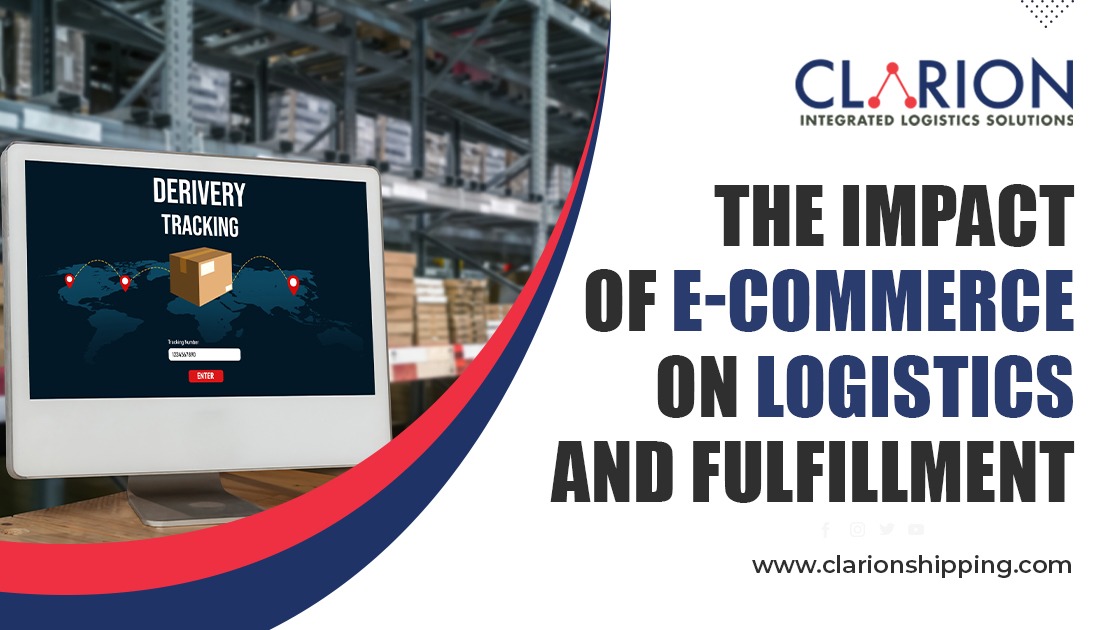
Impact of E-commerce on Logistics and Fulfilment
The impact of E-commerce on logistics and fulfilment is huge and indisputable. E-commerce has made tremendous changes in the systems and technologies of logistics. Let’s take a closer look at each of them. In this blog, we will explore the undeniable impact of e-commerce on logistics fulfilment, diving into several key areas where this transformation is most evident.
1. Demand for Fast Delivery: E-commerce has accelerated the demand for swift delivery. New logistics models, such as same-day or next-day delivery, are not only aimed at improving customer satisfaction but also serve as strategies for the competitive e-commerce industry. Many companies have begun investing in these new logistics models, which have pressured logistics providers to meet these heightened expectations. Increasing the number of warehouses and distribution centres, implementing new technologies such as autonomous vehicles and drones, and delivery route optimizations are some of the methods logistics providers use to provide fast delivery.
2. Data analysis and Manipulation: E-commerce is all about data. Data plays a crucial role in demand forecasting and inventory management. Logistics providers have started to hire data scientists and invest in advanced data analytics tools.
3. Alteration in the Designs of Warehouses: E-commerce has influenced even the design and structure of the warehouses or distribution centres. The structure of warehouses is being redesigned for frequent shipments of small orders. The logistics companies are adopting new technologies such as robots, and automation for smoothening the process of picking and packing.
4. Enhanced Visibility and Tracking: As e-commerce has grown, so has the demand for visibility and real-time tracking. Logistics providers invest in GPS tracking and RFID tagging to give customers transparent shipments, allowing them to track their orders from the moment they place them.
5. Opening Opportunities: The impact of e-commerce has extended to the backstage as well. When e-commerce weaving new strategies or setting up new trends, it opens new job opportunities behind the scenes. The logistics sector is now hiring for positions that were not traditionally found in this sector years ago, such as software engineers, data scientists, UX designers, and digital marketers.
6. Focus on Eco-friendliness: As the e-commerce industry has expanded, the environmental consequences of logistics and transportation have also increased. Thus, companies have started to think about eco-friendly methods in order to reduce their carbon footprint. For example, using electric vehicles for delivery, eco-friendly or recyclable materials for packing, and optimization of delivery routes to reduce fuel consumption are some methods the logistics providers implement for a sustainable future.
Overall, the impact of e-commerce on logistics and fulfilment has forced the industry to adapt, innovate, and become more customer-centric and environmentally responsible. It’s a dynamic relationship where e-commerce drives changes in logistics, and logistics, in turn, plays a critical role in the success of the e-commerce ecosystem. The evolution of these two sectors continues to shape the way goods are distributed, creating a more efficient, data-driven, and eco-friendly future for both businesses and consumers.





